#BigQuery best practices
Explore tagged Tumblr posts
Text
Aible And Google Cloud: Gen AI Models Sets Business Security
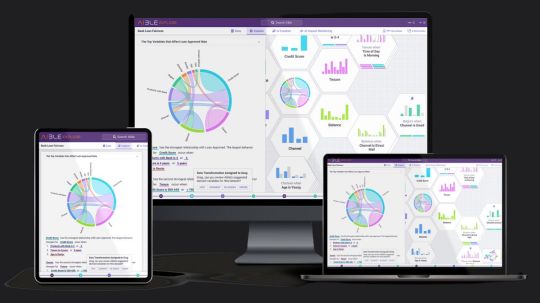
Enterprise controls and generative AI for business users in real time.
Aible
With solutions for customer acquisition, churn avoidance, demand prediction, preventive maintenance, and more, Aible is a pioneer in producing business impact from AI in less than 30 days. Teams can use AI to extract company value from raw enterprise data. Previously using BigQuery’s serverless architecture to save analytics costs, Aible is now working with Google Cloud to provide users the confidence and security to create, train, and implement generative AI models��on their own data.
The following important factors have surfaced as market awareness of generative AI’s potential grows:
Enabling enterprise-grade control
Businesses want to utilize their corporate data to allow new AI experiences, but they also want to make sure they have control over their data to prevent unintentional usage of it to train AI models.
Reducing and preventing hallucinations
The possibility that models may produce illogical or non-factual information is another particular danger associated with general artificial intelligence.
Empowering business users
Enabling and empowering business people to utilize gen AI models with the least amount of hassle is one of the most beneficial use cases, even if gen AI supports many enterprise use cases.
Scaling use cases for gen AI
Businesses need a method for gathering and implementing their most promising use cases at scale, as well as for establishing standardized best practices and controls.
Regarding data privacy, policy, and regulatory compliance, the majority of enterprises have a low risk tolerance. However, given its potential to drive change, they do not see postponing the deployment of Gen AI as a feasible solution to market and competitive challenges. As a consequence, Aible sought an AI strategy that would protect client data while enabling a broad range of corporate users to swiftly adapt to a fast changing environment.
In order to provide clients complete control over how their data is used and accessed while creating, training, or optimizing AI models, Aible chose to utilize Vertex AI, Google Cloud’s AI platform.
Enabling enterprise-grade controls
Because of Google Cloud’s design methodology, users don’t need to take any more steps to ensure that their data is safe from day one. Google Cloud tenant projects immediately benefit from security and privacy thanks to Google AI products and services. For example, protected customer data in Cloud Storage may be accessed and used by Vertex AI Agent Builder, Enterprise Search, and Conversation AI. Customer-managed encryption keys (CMEK) can be used to further safeguard this data.
With Aible‘s Infrastructure as Code methodology, you can quickly incorporate all of Google Cloud’s advantages into your own applications. Whether you choose open models like LLama or Gemma, third-party models like Anthropic and Cohere, or Google gen AI models like Gemini, the whole experience is fully protected in the Vertex AI Model Garden.
In order to create a system that may activate third-party gen AI models without disclosing private data outside of Google Cloud, Aible additionally collaborated with its client advisory council, which consists of Fortune 100 organizations. Aible merely transmits high-level statistics on clusters which may be hidden if necessary instead of raw data to an external model. For instance, rather of transmitting raw sales data, it may communicate counts and averages depending on product or area.
This makes use of k-anonymity, a privacy approach that protects data privacy by never disclosing information about groups of people smaller than k. You may alter the default value of k; the more private the information transmission, the higher the k value. Aible makes the data transmission even more secure by changing the names of variables like “Country” to “Variable A” and values like “Italy” to “Value X” when masking is used.
Mitigating hallucination risk
It’s crucial to use grounding, retrieval augmented generation (RAG), and other strategies to lessen and lower the likelihood of hallucinations while employing gen AI. Aible, a partner of Built with Google Cloud AI, offers automated analysis to support human-in-the-loop review procedures, giving human specialists the right tools that can outperform manual labor.
Using its auto-generated Information Model (IM), an explainable AI that verifies facts based on the context contained in your structured corporate data at scale and double checks gen AI replies to avoid making incorrect conclusions, is one of the main ways Aible helps eliminate hallucinations.
Hallucinations are addressed in two ways by Aible’s Information Model:
It has been shown that the IM helps lessen hallucinations by grounding gen AI models on a relevant subset of data.
To verify each fact, Aible parses through the outputs of Gen AI and compares them to millions of responses that the Information Model already knows.
This is comparable to Google Cloud’s Vertex AI grounding features, which let you link models to dependable information sources, like as your company’s papers or the Internet, to base replies in certain data sources. A fact that has been automatically verified is shown in blue with the words “If it’s blue, it’s true.” Additionally, you may examine a matching chart created only by the Information Model and verify a certain pattern or variable.
The graphic below illustrates how Aible and Google Cloud collaborate to provide an end-to-end serverless environment that prioritizes artificial intelligence. Aible can analyze datasets of any size since it leverages BigQuery to efficiently analyze and conduct serverless queries across millions of variable combinations. One Fortune 500 client of Aible and Google Cloud, for instance, was able to automatically analyze over 75 datasets, which included 150 million questions and answers with 100 million rows of data. That assessment only cost $80 in total.
Aible may also access Model Garden, which contains Gemini and other top open-source and third-party models, by using Vertex AI. This implies that Aible may use AI models that are not Google-generated while yet enjoying the advantages of extra security measures like masking and k-anonymity.
All of your feedback, reinforcement learning, and Low-Rank Adaptation (LoRA) data are safely stored in your Google Cloud project and are never accessed by Aible.
Read more on Govindhtech.com
#Aible#GenAI#GenAIModels#BusinessSecurity#AI#BigQuery#AImodels#VertexAI#News#Technews#Technology#Technologynews#Technologytrends#govindhtech
2 notes
·
View notes
Text
Explain secure data sharing and use cases for cross-organization collaboration.

Secure Data Sharing and Use Cases for Cross-Organization Collaboration In today’s data-driven world, organizations frequently need to share data securely across departments, partners, vendors, and regulatory bodies.
Secure data sharing ensures that sensitive data is protected while enabling seamless collaboration, analytics, and decision-making.
🔐 What Is Secure Data Sharing?
Secure data sharing refers to controlled access to data across different organizations or business units without compromising security, privacy, or compliance.
Modern cloud platforms offer mechanisms that allow governed, permission-based sharing without physically moving or duplicating data.
Key Features of Secure Data Sharing:
✅ Access Control — Fine-grained permissions control who can access data.
✅ Encryption & Masking — Protects sensitive data in transit and at rest.
✅ Audit Logging — Tracks who accessed what data and when.
✅ Federated Identity Management — Ensures only authorized users access shared data.
✅ Multi-Cloud & Hybrid Support — Enables secure sharing across different cloud providers. 🛠 Technologies for Secure Data Sharing Various platforms offer secure data-sharing features, including:
1️⃣ Azure Synapse Analytics & Azure Data Share Azure Data Share enables organizations to share data without duplication. Synapse Analytics allows cross-team collaboration while enforcing access policies.
2️⃣ AWS Data Exchange & Lake Formation AWS Lake Formation provides fine-grained access control for shared data lakes. AWS Data Exchange allows businesses to subscribe to third-party data securely.
3️⃣ Snowflake Secure Data Sharing Enables real-time, zero-copy data sharing across organizations without moving data. Supports row- and column-level security for precise control.
4️⃣ Google BigQuery Data Sharing Uses authorized views and datasets for multi-tenant collaboration. 📌 Use Cases for Cross-Organization Collaboration
1️⃣ Enterprise Data Sharing Across Departments
📊 Use Case: A large multinational company wants to share HR, finance, and marketing data across different departments while maintaining strict access controls.
✅ Solution: Using Snowflake Secure Data Sharing or Azure Data Share, teams can access only the data they are authorized to see, eliminating the need for redundant data copies.
2️⃣ Partner & Vendor Collaboration
🔗 Use Case: A retail company wants to share real-time sales data with suppliers for demand forecasting.
✅ Solution: AWS Lake Formation enables secure data lake sharing, allowing suppliers to access live sales trends while maintaining customer privacy through data masking.
3️⃣ Data Monetization & Marketplace Models ��� Use Case: A financial institution wants to sell anonymized transaction data to third-party analytics firms.
✅ Solution: AWS Data Exchange or Snowflake enables governed, controlled data sharing with external consumers without exposing personal details.
4️⃣ Healthcare & Research Collaboration
🏥 Use Case: Hospitals and pharmaceutical companies collaborate on medical research while complying with HIPAA & GDPR regulations.
✅ Solution: Federated data sharing models allow hospitals to run analytics on combined datasets without sharing raw patient records.
5️⃣ Regulatory & Compliance Reporting
📜 Use Case: Banks must share financial transaction data with regulators without violating privacy laws.
✅ Solution: Secure APIs with token-based authentication provide regulators with controlled access while maintaining an audit trail.
🔐 Best Practices for Secure Data Sharing
🔹 Role-Based Access Control (RBAC): Assign access rights based on user roles.
🔹 Data Masking & Anonymization: Protect sensitive PII data before sharing.
🔹 Encryption (TLS & AES-256): Encrypt data in transit and at rest.
🔹 Federated Authentication (OAuth, SAML): Ensure secure identity verification.
🔹 Zero Trust Architecture: Implement least privilege access policies.
🚀 Conclusion
Secure data sharing is crucial for modern enterprises looking to collaborate efficiently while protecting data privacy. Technologies like Azure Data Share, Snowflake, and AWS Lake Formation enable organizations to share data securely across departments, partners, and regulators.
By following best practices and using the right platforms, businesses can unlock secure, compliant, and scalable data collaboration.

0 notes
Text
Exploring Cloud Computing Careers: Roles, Skills, and How to Get Started

Cloud computing has transformed how businesses operate by providing scalable, on-demand access to computing resources via the internet. As organizations increasingly adopt cloud technologies, the need for skilled professionals in this field has skyrocketed. But what exactly does a cloud computing job involve? In this article, we’ll explore the roles, responsibilities, and skills needed for a career in cloud computing. We’ll also highlight how the Boston Institute of Analytics' Cloud Computing Course can help you thrive in this exciting domain.
What Do Cloud Computing Jobs Entail?
A career in cloud computing revolves around using cloud-based technologies to design, implement, and manage applications and services hosted on platforms like Amazon Web Services (AWS), Microsoft Azure, and Google Cloud Platform (GCP). These roles play a crucial part in helping businesses harness the cloud's power to improve efficiency, scalability, and cost-effectiveness.
Cloud computing jobs span various areas, such as infrastructure management, application development, data analytics, and cybersecurity. Let’s dive into some of the most common roles within this field:
1. Cloud Engineer
Cloud engineers focus on building, deploying, and maintaining cloud infrastructure. Their work ensures that applications and services run seamlessly in the cloud. Key responsibilities include:
Configuring cloud environments.
Automating deployments with tools like Terraform or Ansible.
Monitoring and optimizing cloud system performance.
2. Cloud Architect
Cloud architects design overarching cloud strategies and infrastructure frameworks. They collaborate with stakeholders to align cloud solutions with organizational objectives. Their responsibilities include:
Creating cloud architecture designs.
Choosing the best cloud services for specific use cases.
Ensuring security and compliance in cloud environments.
3. DevOps Engineer
DevOps engineers work to streamline collaboration between development and operations teams, emphasizing automation and continuous integration/continuous deployment (CI/CD). Their tasks include:
Building and managing CI/CD pipelines.
Automating infrastructure provisioning.
Enhancing application performance in cloud environments.
4. Cloud Security Specialist
As cybersecurity becomes increasingly critical, cloud security specialists protect cloud environments from threats. Their responsibilities include:
Implementing robust security practices.
Identifying and addressing vulnerabilities.
Managing access controls and identity systems.
5. Data Engineer
Data engineers use cloud-based tools to process and analyze large datasets. They rely on cloud platforms for storage, computation, and machine learning tasks. Key responsibilities include:
Developing data pipelines.
Managing cloud data warehouses like Google BigQuery or Amazon Redshift.
Ensuring data quality and availability.
Essential Skills for Cloud Computing Careers
Excelling in a cloud computing role requires a blend of technical expertise and soft skills. Here are the key skills to focus on:
Technical Skills
Familiarity with Cloud Platforms
Proficiency in AWS, Azure, or GCP is a must, as each platform offers unique tools and services tailored to business needs.
Programming Knowledge
Languages like Python, Java, and Go are widely used for automating tasks and building cloud-native applications.
Networking Fundamentals
Understanding concepts like DNS, load balancing, and firewalls is crucial for managing cloud environments.
Containerization and Orchestration
Tools like Docker and Kubernetes are essential for deploying and managing containerized applications.
Cloud Security
Familiarity with encryption, identity management, and other security best practices is vital for safeguarding cloud resources.
Soft Skills
Problem-Solving
Cloud professionals must identify and resolve technical challenges effectively.
Team Collaboration
Strong communication and teamwork skills are essential for working across departments.
Adaptability
Keeping up with rapidly evolving cloud technologies is a critical skill for long-term success.
Steps to Launch Your Cloud Computing Career
If you’re ready to embark on a career in cloud computing, follow these steps:
1. Understand the Basics
Start by learning the foundational concepts of cloud computing, such as virtualization, cloud deployment models, and service types (IaaS, PaaS, SaaS).
2. Get Hands-On Experience
Create free accounts on platforms like AWS, Azure, or Google Cloud to practice setting up virtual machines, deploying applications, and configuring storage.
3. Earn Certifications
Certifications demonstrate your expertise and enhance your resume. Popular certifications include:
AWS Certified Solutions Architect
Microsoft Azure Fundamentals
Google Cloud Professional Cloud Architect
4. Join a Training Program
Structured training programs can accelerate your learning and provide real-world experience. The Boston Institute of Analytics offers tailored Cloud Computing Course to prepare you for a successful career in cloud computing.
Why Choose the Boston Institute of Analytics for Cloud Computing And DevOps Course?
The Boston Institute of Analytics (BIA) is a globally renowned institution that specializes in training for emerging technologies. Their Cloud Computing Course is designed to equip learners with the skills needed to excel in cloud computing roles.
Highlights of the Cloud Training Institute
Comprehensive Curriculum
Covers critical topics like cloud architecture, DevOps, security, and data analytics.
Hands-On Practice
Offers practical projects and lab exercises to build real-world expertise.
Expert-Led Training
Learn from seasoned professionals with extensive experience in cloud computing and DevOps.
Certification Support
Helps you prepare for globally recognized certifications, enhancing your career prospects.
Career Services
Provides resume assistance, interview preparation, and job placement assistance to help you succeed.
Why Cloud Computing Careers Are Booming
The demand for cloud computing professionals is growing rapidly due to:
Digital Transformation
Organizations are adopting cloud technologies to improve agility and reduce costs.
Remote Work Trends
Cloud solutions enable seamless collaboration and remote access to resources.
Technological Innovations
Emerging technologies like AI, ML, and IoT heavily depend on cloud infrastructure.
Increased Focus on Security
As more businesses migrate to the cloud, the need for robust security measures continues to rise.
Final Thoughts
A career in cloud computing offers the chance to work with cutting-edge technologies and drive impactful projects. Whether your interests lie in engineering, architecture, DevOps, or data analytics, there’s a role for you in this dynamic field.
To get started, consider enrolling in the Boston Institute of Analytics' Cloud Computing Course. With their industry-aligned curriculum, hands-on projects, and expert mentorship, you’ll gain the skills and confidence needed to excel in the competitive world of cloud computing.
0 notes
Text
Power BI Training | Power BI Online Training
Power BI Training: What Types of Data Can Power BI Handle?

Power BI Training equips individuals and businesses with the skills to transform raw data into actionable insights. One of the primary reasons Power BI has gained immense popularity in recent years is its unparalleled ability to handle a wide variety of data types. Whether you’re analyzing financial reports, visualizing customer trends, or integrating cloud data sources, Power BI is a versatile tool that supports diverse data formats and systems. With the growing demand for Power BI Online Training, users can now easily master the techniques to utilize its capabilities and integrate data from multiple sources seamlessly.
In this article, we will explore the types of data that Power BI can handle and highlight how the tool empowers users to extract value from various data streams. From relational databases to real-time cloud data, understanding Power BI's compatibility with different data formats is essential for both beginners and advanced users.
Relational Databases: The Foundation of Business Insights
Relational databases are among the most commonly used data sources in businesses. Power BI connects seamlessly with relational databases such as SQL Server, MySQL, Oracle Database, and PostgreSQL. These databases store structured data in tables, making them ideal for generating reports and dashboards. Power BI Training emphasizes leveraging these connections to perform efficient data modeling, create calculated columns, and design measures using DAX (Data Analysis Expressions).
By utilizing Power BI's built-in data connectors, users can import large volumes of structured data without compromising performance. Whether it’s sales data, inventory records, or employee metrics, Power BI empowers users to uncover insights through its interactive dashboards.
Excel and CSV Files: Simplicity Meets Functionality
Power BI is widely known for its compatibility with Excel and CSV files, making it a favourite tool among professionals who work with these formats. Many organizations rely on spreadsheets for budgeting, forecasting, and reporting. Power BI allows users to directly import and transform this data into visually appealing reports.
With Power BI Online Training, users can also learn how to automate the refresh of data from Excel files stored on One Drive or SharePoint. This ensures that reports and dashboards remain up-to-date without manual intervention. Its drag-and-drop interface simplifies the process of merging multiple datasets, enabling users to create comprehensive views of their business operations.
Cloud Data Sources: Real-Time Data at Your Fingertips
As businesses transition to cloud-based platforms, the ability to analyze real-time data has become critical. Power BI supports a wide range of cloud-based data sources, including Azure SQL Database, Google BigQuery, Amazon Redshift, and Salesforce. This capability allows users to connect to live datasets and monitor key performance indicators (KPIs) in real time.
Power BI Training often covers best practices for working with cloud data, including configuring gateways and optimizing queries for faster performance. This is particularly useful for businesses that rely on SaaS (Software as a Service) applications for their day-to-day operations. Real-time analytics in Power BI can drive immediate decision-making, helping businesses stay competitive in dynamic markets.
Unstructured Data: Making Sense of Complexity
While structured data is easy to analyze, unstructured data presents a unique challenge. Unstructured data includes formats like text files, PDFs, social media content, and multimedia files. With the help of tools like Power BI and its integration with Azure Cognitive Services, users can analyze and visualize unstructured data effectively.
For example, sentiment analysis can be performed on customer reviews or social media posts, providing businesses with valuable insights into consumer behaviour. Advanced Power BI Online Training delves into techniques for handling unstructured data, including natural language processing (NLP) and custom visualizations.
Big Data: Harnessing Volume, Variety, and Velocity
In the era of big data, organizations must process large datasets that often come from diverse sources. Power BI integrates seamlessly with big data platforms like Hadoop, Apache Spark, and Azure Data Lake. These integrations enable users to analyze massive datasets without requiring extensive technical expertise.
During Power BI Training, participants learn how to use DirectQuery and import modes to optimize big data workflows. DirectQuery allows users to query large datasets without importing them into Power BI, which is particularly useful for businesses dealing with high-volume data streams. These capabilities make Power BI an essential tool for industries such as finance, healthcare, and retail.
APIs and Custom Data Sources: Flexibility Redefined
Power BI's ability to connect with APIs (Application Programming Interfaces) opens up a world of possibilities for developers and data analysts. APIs allow Power BI to pull data from custom sources, including proprietary systems and third-party applications. By configuring API connections, users can create custom dashboards tailored to their specific needs.
Through Power BI Online Training, users can learn how to set up and manage these custom integrations. This feature is particularly beneficial for organizations that rely on niche software solutions for their operations. With Power BI, even the most complex data sources can be visualized and shared across teams.
IoT Data: Driving Innovation with Real-Time Insights
The Internet of Things (IoT) has revolutionized industries by providing real-time data from sensors, devices, and machines. Power BI supports IoT data integration through Azure IoT Hub, enabling users to monitor equipment performance, track energy consumption, or analyze logistics operations in real time.
Participants in Power BI Training gain hands-on experience in working with IoT data, learning how to build dynamic dashboards that capture and visualize live data streams. These capabilities are critical for industries like manufacturing, transportation, and energy, where timely insights can prevent downtime and improve efficiency.
Conclusion
Power BI's versatility lies in its ability to handle a wide range of data types, from structured and unstructured datasets to real-time IoT and big data sources. By integrating with relational databases, spreadsheets, cloud services, and APIs, Power BI has established itself as a comprehensive tool for data analysis and visualization.
For professionals and organizations looking to harness the full potential of this tool, Power BI Training provides the foundation needed to master its features. Whether you're a beginner or an experienced analyst, Power BI Online Training ensures that you can work efficiently with various data formats and create impactful reports. With Power BI, the possibilities for data-driven decision-making are virtually limitless.
Visualpath is the Leading and Best Institute for learning in Hyderabad. We provide Power BI Course Online. You will get the best course at an affordable cost.
Attend Free Demo
Call on – +91-9989971070
Blog: https://visualpathblogs.com/
What’s App: https://www.whatsapp.com/catalog/919989971070/
Visit: https://www.visualpath.in/powerbi-training.html
#Power BI Training#Power BI Online Training#Power BI Course Online#Power BI Training in Hyderabad#Power BI Training in Ameerpet#Power BI Training Institute in Hyderabad#Power BI Online Training Hyderabad#Power BI Course in Hyderabad
1 note
·
View note
Text
Data engineering
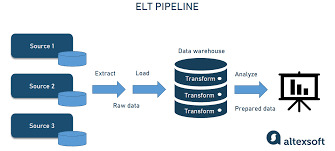
The Backbone of Modern Analytics: Data Engineering in Practice
In an increasingly data-driven world, organizations are constantly leveraging the power of analytics to gain competitive advantages, enhance decision-making, and uncover valuable insights. However, the value of data is only realized when it is structured, clean, and accessible — this is where data engineering comes into play. As the foundational discipline underpinning data science, machine learning, and business intelligence, data engineering is the unsung hero of modern analytics.
In this comprehensive blog, we’ll explore the landscape of data engineering: its definition, components, tools, challenges, and best practices, as well as its pivotal role in today’s digital economy.
What is Data Engineering?
Data engineering refers to the process of designing, building, and maintaining systems and architectures that allow large-scale data to be collected, stored, and analyzed. Data engineers focus on transforming raw, unstructured, or semi-structured data into structured formats that are usable for analysis and business.
Think of data engineering as constructing the "plumbing" of data systems: building pipelines to extract data from various sources, ensuring data quality, transforming it into a usable state, and loading it into systems where analysts and data scientists can access it easily.
The Core Components of Data Engineering
1. Data Collection and Ingestion
Data engineers start by collecting data from various sources like databases, APIs, files, IoT devices, and other third-party systems. Data ingestion is the term given for this process. The incorporation of different systems forms the basis of data ingestion with consistent and efficient importation into centralized repositories.
2. Data Storage
Once consumed, data has to be stored in systems that are scalable and accessible. Data engineers will decide whether to use conventional relational databases, distributed systems such as Hadoop, or cloud-based storage solutions, such as Amazon S3 or Google Cloud Storage. Depending on the volume, velocity, and variety of the data, the choice is made Raw data is rarely usable in its raw form. Data transformation involves cleaning, enriching, and reformatting the data to make it analysis-ready. This process is encapsulated in the ETL (Extract, Transform, Load) or ELT (Extract, Load, Transform) pipelines.
4. Data Pipelines
At the heart of data engineering are data pipelines that automate the movement of data between systems. These can be designed to handle either real-time (streaming) or batch data, based on the use case.
5. Data Quality and Governance
To obtain reliable analytics, the data must be correct and consistent. Data engineers put in validation and deduplication processes and ensure standardization with proper adherence to data governance standards such as GDPR or CCPA.
6. Data Security
Data is a very important business resource, and safeguarding it must be a data engineer's core responsibility. They therefore use encryption, access controls, and other security measures over sensitive information.
Common Tools in Data Engineering
Data engineering has seen lots of change in recent history, with numerous tools having emerged to tackle various themes in the discipline. Following are some of the leading tools:
1. Data Ingestion Tools
Apache Kafka: A distributed event streaming platform ideal for real-time ingestion.
Apache Nifi: Simplifies the movement of data between systems.
Fivetran and Stitch: Cloud-based tools for ETL pipelines.
2. Data Storage Solutions
Relational Databases: MySQL, PostgreSQL, and Microsoft SQL Server.
Distributed Systems: Apache HDFS, Amazon S3, and Google BigQuery.
NoSQL Databases: MongoDB, Cassandra, and DynamoDB.
3. Data Processing Frameworks
Apache Spark: A unified analytics engine for large-scale data processing.
Apache Flink: Focused on stream processing.
Google Dataflow: A cloud-based service for batch and streaming data processing.
4. Orchestration Tools
Apache Airflow: Widely used for scheduling and managing workflows.
Prefect: A more recent alternative to Airflow, with a focus on flexibility.
Dagster: A platform for orchestrating complex data pipelines.
5. Cloud Ecosystems
AWS: Redshift, Glue, and EMR
Google Cloud: BigQuery, Dataflow, and Pub/Sub
Microsoft Azure: Synapse Analytics and Data Factory
The Role of Data Engineers in the Data Ecosystem
Data engineers play a very important role in the larger data ecosystem by working with other data professionals, including data scientists, analysts, and software engineers. Responsibilities include:
Enablement of Data Scientists: Ensuring that high-quality, well-organized data is available for modeling and machine learning tasks.
Enablement of Business Intelligence: Creating data models and warehouses that power dashboards and reports.
Scalability and Performance: Optimize systems for growing datasets with efficient delivery of real-time insights.
Building Resilient Architectures: Ensuring fault tolerance, disaster recovery, and scalability in data systems.
Challenges in Data Engineering
Data engineering is a challenge in its own right While data engineering is quite important, it's by no means without its problems:
1. Managing Data Volume, Velocity, and Variety
The exponential growth of data creates challenges in storage, processing, and integration. Engineers must design systems that scale seamlessly.
2. Data Quality Issues
Handling incomplete, inconsistent, or redundant data requires meticulous validation and cleansing processes.
3. Real-Time Processing
Real-time analytics demands low-latency systems, which can be difficult to design and maintain.
**4. Keeping Up with Technology
The pace of innovation in data engineering tools and frameworks requires continuous learning and adaptation.
5. Security and Compliance
Data security breaches and ever-changing regulations add complexity to building compliant and secure pipelines.
Best Practices in Data Engineering
To address these challenges, data engineers adhere to best practices that ensure reliable and efficient data pipelines:
Scalability Design: Use distributed systems and cloud-native solutions to manage large datasets.
Automation of Repetitive Tasks: Use tools like Airflow and Prefect for workflow automation.
Data Quality: Implement validation checks and error-handling mechanisms.
DevOps Principles: Use CI/CD pipelines for deploying and testing data infrastructure.
Document Everything: Maintain comprehensive documentation for pipelines, transformations, and schemas.
Collaborate Across Teams: Work with analysts and data scientists to get what they need and make it actionable.
The Future of Data Engineering
As the amount of data continues to explode, data engineering will only grow in importance. Some of the key trends that will shape the future are:
1. The Rise of DataOps
DataOps applies DevOps-like principles toward automation, collaboration, and process improvement in data workflows.
2. Serverless Data Engineering
Cloud providers increasingly offer serverless solutions, and engineers can focus on data rather than infrastructure.
3. Real-Time Data Pipelines
As IoT, edge computing, and event-driven architectures become more prominent, real-time processing is no longer the exception but the rule.
4. AI in Data Engineering
Machine learning is being incorporated into data engineering workflows to automate tasks like anomaly detection and schema mapping.
5. Unified Platforms Databricks and Snowflake, among others, are becoming unified platforms to simplify data engineering and analytics.
Why Data Engineering Matters
Companies that put strong data engineering into their practice reap big advantages:
Faster Time-to-Insights: Clean, accessible data facilitates quicker and more reliable decisions.
Stronger Data-Driven Culture: Well-structured data systems enable each member of the team to leverage data.
Cost Savings: Efficient pipelines reduce storage and processing costs.
Innovation Enablement: High-quality data fuels cutting-edge innovations in AI and machine learning.
Conclusion
Data engineering is the backbone of the modern data-driven world. It enables the organization to unlock the full potential of data by building the infrastructure that transforms raw data into actionable insights. The field certainly poses significant challenges, but strong data engineering practices bring great rewards, from enhanced analytics to transformative business outcomes.
As data continues to grow in scale and complexity, the role of data engineers will become even more crucial. Whether you’re an aspiring professional, a business leader, or a tech enthusiast, understanding the principles and practices of data engineering is key to thriving in today’s digital economy.
for more information visit our website
https:// researchpro.online/upcoming
0 notes
Text
Unlocking the Potential of Your Data: A Guide to Modern Data Engineering Services

In today's digital-first world, data has become the backbone of business success. From enhancing decision-making to driving innovation, the value of data cannot be overstated. But how do businesses ensure that their data is ready to deliver on its promise? Enter data engineering services — the bridge between raw data and actionable insights.
This blog explores the latest trends, best practices, and unique strategies in data engineering, helping organizations leverage data to stay ahead of the curve.
1. The Role of Data Engineering in Modern Businesses
Data engineering is more than just managing databases or building pipelines. It's about creating robust frameworks for data collection, transformation, and storage while ensuring quality and accessibility. Businesses today demand real-time analytics, predictive modeling, and seamless integrations — all of which hinge on well-engineered data systems.
2. Top Trends Transforming Data Engineering Services
a. Rise of Cloud Data Platforms Cloud-native data engineering solutions like Snowflake, Databricks, and BigQuery are revolutionizing how businesses store and process data. They offer scalability, flexibility, and cost efficiency.
b. DataOps for Agile Data Management DataOps combines DevOps principles with data engineering, enabling faster and more reliable data delivery. Automation and CI/CD pipelines for data workflows are becoming the norm.
c. Focus on Data Observability Ensuring data reliability is critical. Tools like Monte Carlo and Datadog are helping organizations proactively monitor and address data quality issues.
d. Integration of AI and Machine Learning Data engineering services now incorporate AI and ML models to automate routine tasks like data mapping, anomaly detection, and schema generation.
3. Benefits of Investing in Data Engineering Services
Improved Decision-Making: Access to clean, structured, and actionable data enables faster and better decisions.
Cost Efficiency: Efficient data pipelines reduce resource wastage and infrastructure costs.
Enhanced Compliance: Modern solutions ensure adherence to data privacy regulations like GDPR and CCPA.
Scalability: With the right data engineering services, businesses can handle growing data volumes seamlessly.
4. Key Components of Effective Data Engineering Solutions
Data Architecture Design: Structuring data ecosystems for optimal performance.
ETL/ELT Processes: Building automated workflows for data extraction, transformation, and loading.
Real-Time Data Processing: Leveraging tools like Apache Kafka and Spark for instantaneous data insights.
Data Governance and Security: Ensuring data integrity, privacy, and compliance with robust frameworks.
5. How to Choose the Right Data Engineering Service Provider
When selecting a data engineering partner, consider:
Their expertise in modern tools and platforms.
Proven case studies and success stories.
Scalability of their solutions.
Focus on data security and governance.
Conclusion The demand for data engineering services is only set to grow as businesses increasingly rely on data-driven strategies. By embracing cutting-edge trends like DataOps, cloud platforms, and AI-driven automation, organizations can unlock the full potential of their data. Investing in the right data engineering solutions today will pave the way for sustained success tomorrow.
0 notes
Text
Google Cloud (GCP) Platform: GCP Essentials, Cloud Computing, GCP Associate Cloud Engineer, and Professional Cloud Architect
Introduction
Google Cloud Platform (GCP) is one of the leading cloud computing platforms, offering a range of services and tools for businesses and individuals to build, deploy, and manage applications on Google’s infrastructure. In this guide, we’ll dive into the essentials of GCP, explore cloud computing basics, and examine two major GCP certifications: the Associate Cloud Engineer and Professional Cloud Architect. Whether you’re a beginner or aiming to level up in your cloud journey, understanding these aspects of GCP is essential for success.
1. Understanding Google Cloud Platform (GCP) Essentials
Google Cloud Platform offers over 90 products covering compute, storage, networking, and machine learning. Here are the essentials:
Compute Engine: Virtual machines on demand
App Engine: Platform as a Service (PaaS) for app development
Kubernetes Engine: Managed Kubernetes for container orchestration
Cloud Functions: Serverless execution for event-driven functions
BigQuery: Data warehouse for analytics
Cloud Storage: Scalable object storage for any amount of data
With these foundational services, GCP allows businesses to scale, innovate, and adapt to changing needs without the limitations of traditional on-premises infrastructure.
2. Introduction to Cloud Computing
Cloud computing is the delivery of on-demand computing resources over the internet. These resources include:
Infrastructure as a Service (IaaS): Basic computing, storage, and networking resources
Platform as a Service (PaaS): Development tools and environment for building apps
Software as a Service (SaaS): Fully managed applications accessible via the internet
In a cloud environment, users pay for only the resources they use, allowing them to optimize cost, increase scalability, and ensure high availability.
3. GCP Services and Tools Overview
GCP provides a suite of tools for development, storage, machine learning, and data analysis:
AI and Machine Learning Tools: Google Cloud ML, AutoML, and TensorFlow
Data Management: Datastore, Firestore, and Cloud SQL
Identity and Security: Identity and Access Management (IAM), Key Management
Networking: VPC, Cloud CDN, and Cloud Load Balancing
4. Getting Started with GCP Essentials
To start with GCP, you need a basic understanding of cloud infrastructure:
Create a GCP Account: You’ll gain access to a free tier with $300 in credits.
Explore the GCP Console: The console provides a web-based interface for managing resources.
Google Cloud Shell: A command-line interface that runs in the cloud, giving you quick access to GCP tools and resources.
5. GCP Associate Cloud Engineer Certification
The Associate Cloud Engineer certification is designed for beginners in the field of cloud engineering. This certification covers:
Managing GCP Services: Setting up projects and configuring compute resources
Storage and Databases: Working with storage solutions like Cloud Storage, Bigtable, and SQL
Networking: Configuring network settings and VPCs
IAM and Security: Configuring access management and security protocols
This certification is ideal for entry-level roles in cloud administration and engineering.
6. Key Topics for GCP Associate Cloud Engineer Certification
The main topics covered in the exam include:
Setting up a Cloud Environment: Creating and managing GCP projects and billing accounts
Planning and Configuring a Cloud Solution: Configuring VM instances and deploying storage solutions
Ensuring Successful Operation: Managing resources and monitoring solutions
Configuring Access and Security: Setting up IAM and implementing security best practices
7. GCP Professional Cloud Architect Certification
The Professional Cloud Architect certification is an advanced-level certification. It prepares professionals to:
Design and Architect GCP Solutions: Creating scalable and efficient solutions that meet business needs
Optimize for Security and Compliance: Ensuring GCP solutions meet security standards
Manage and Provision GCP Infrastructure: Deploying and managing resources to maintain high availability and performance
This certification is ideal for individuals in roles involving solution design, architecture, and complex cloud deployments.
8. Key Topics for GCP Professional Cloud Architect Certification
Key areas covered in the Professional Cloud Architect exam include:
Designing Solutions for High Availability: Ensuring solutions remain available even during failures
Analyzing and Optimizing Processes: Ensuring that processes align with business objectives
Managing and Provisioning Infrastructure: Creating automated deployments using tools like Terraform and Deployment Manager
Compliance and Security: Developing secure applications that comply with industry standards
9. Preparing for GCP Certifications
Preparation for GCP certifications involves hands-on practice and understanding key concepts:
Use GCP’s Free Tier: GCP offers a free trial with $300 in credits for testing services.
Enroll in Training Courses: Platforms like Coursera and Google’s Qwiklabs offer courses for each certification.
Practice Labs: Qwiklabs provides guided labs to help reinforce learning with real-world scenarios.
Practice Exams: Test your knowledge with practice exams to familiarize yourself with the exam format.
10. Best Practices for Cloud Engineers and Architects
Follow GCP’s Best Practices: Use Google’s architecture framework to design resilient solutions.
Automate Deployments: Use IaC tools like Terraform for consistent deployments.
Monitor and Optimize: Use Cloud Monitoring and Cloud Logging to track performance.
Cost Management: Utilize GCP’s Billing and Cost Management tools to control expenses.
Conclusion
Whether you aim to become a GCP Associate Cloud Engineer or a Professional Cloud Architect, GCP certifications provide a valuable pathway to expertise. GCP’s comprehensive services and tools make it a powerful choice for anyone looking to expand their cloud computing skills.
0 notes
Text
What is Google Cloud (GCP) MasterClass?

The Google Cloud (GCP) MasterClass is a comprehensive training program designed to provide learners with a deep understanding of Google Cloud’s core services and advanced functionalities. If you’re someone who is serious about building a career in cloud computing, this course could be your key to success. You’ll learn how to manage, deploy, and scale applications using Google Cloud Platform—skills that are in high demand across the tech world.
Why You Should Learn Google Cloud (GCP)
When it comes to cloud computing, Google Cloud (GCP) stands tall alongside AWS and Microsoft Azure. But what makes GCP unique is its integration with Google’s global infrastructure, giving you access to a secure and scalable platform used by some of the biggest names in the industry like Spotify, Snapchat, and Airbnb.
With companies increasingly migrating their IT infrastructure to the cloud, GCP-certified professionals are more sought-after than ever. According to multiple reports, job roles in cloud computing are among the top-paying tech positions, and the demand for Google Cloud skills has been growing exponentially. So, if you're looking for a career that is both lucrative and future-proof, mastering Google Cloud is a great step forward.
What Does the Google Cloud (GCP) MasterClass Offer?
Foundations of Google Cloud Platform (GCP)
The course begins with an overview of GCP—understanding its core components like Compute Engine, Cloud Storage, and BigQuery. You’ll get acquainted with the basics, such as creating a virtual machine, setting up a cloud environment, and managing cloud projects.
Hands-on Experience with Real-World Projects
One of the standout features of this MasterClass is the hands-on labs. You’ll work on actual cloud projects that simulate real-world challenges, giving you practical experience that you can apply in your job or business. These projects are specifically designed to mirror the challenges faced by enterprises using GCP, making this learning experience invaluable.
Mastering Cloud Security and Networking
In today’s digital world, security is a top priority. This course will teach you how to secure your cloud environment, manage access controls, and configure networking solutions using GCP's Identity and Access Management (IAM) and VPC networks.
Advanced Data Analytics and Machine Learning
The MasterClass goes beyond just cloud infrastructure. You’ll dive into data analytics and machine learning with tools like BigQuery and TensorFlow. The Google Cloud (GCP) MasterClass prepares you to handle large-scale data, build predictive models, and use AI-driven solutions to solve complex problems.
Who Is This Course For?
IT professionals looking to transition to cloud computing
Developers who want to deploy and scale apps on Google Cloud
Data engineers and analysts keen on using GCP’s data tools
Business leaders aiming to drive their organization’s digital transformation through the cloud
Students and fresh graduates who want to add an in-demand skill to their resume
No matter where you are in your career, the Google Cloud (GCP) MasterClass can help you upskill and stand out in the competitive job market.
What Will You Achieve After Completing the Google Cloud (GCP) MasterClass?
Google Cloud Certification: Upon completion, you'll be equipped to pursue the Google Cloud Certified Professional exams. Certification acts as an industry-recognized badge of expertise that can significantly boost your career.
Practical Expertise: The hands-on labs and real-world projects ensure you have the practical skills to handle cloud infrastructure, deploy scalable solutions, and implement security best practices.
Career Advancement: With companies globally shifting to cloud infrastructure, GCP-certified professionals are landing high-paying roles like Cloud Architect, Data Engineer, and DevOps Engineer. Whether you're looking to get promoted or switch careers, this MasterClass will give you the tools you need.
Benefits of Enrolling in Google Cloud (GCP) MasterClass
High Job Demand: The demand for cloud professionals with expertise in Google Cloud is at an all-time high. By completing this course, you put yourself in a strong position for roles such as Cloud Engineer, Cloud Solutions Architect, and Data Analyst.
Real-World Skills: You won’t just be learning theory. The MasterClass offers real-world projects, which means you'll be ready to jump into a job and start applying what you've learned.
Lucrative Career Paths: Cloud computing is one of the highest-paying fields in tech, and Google Cloud professionals often command top salaries. Completing this course could be your stepping stone to a rewarding, high-paying career.
Career Flexibility: Google Cloud skills are versatile. Whether you want to work as a freelancer, join a startup, or land a role at a tech giant, the knowledge you gain from the Google Cloud (GCP) MasterClass will serve you well.
Key Features of Google Cloud (GCP) MasterClass:
Comprehensive Course Content: From the fundamentals to advanced GCP tools like BigQuery, Kubernetes, and Cloud Machine Learning Engine, this course covers it all.
Updated Curriculum: The tech industry evolves quickly, but you can be assured that this course keeps pace. You’ll learn the latest GCP features, tools, and best practices to keep you relevant in today’s market.
Industry-Leading Instructors: The course is taught by experts with hands-on experience in Google Cloud and cloud computing. You’ll learn from the best, ensuring that you get top-quality instruction.
Why Should Businesses Invest in GCP?
Businesses are rapidly shifting to cloud-first strategies to save on infrastructure costs and improve scalability. With Google Cloud (GCP), companies can streamline their operations, store vast amounts of data, and deploy machine learning models at scale.
If you're an entrepreneur or part of a business team, having GCP-certified professionals within your organization can help you leverage Google’s powerful cloud ecosystem. Not only can it improve your business’s agility, but it also gives you a competitive edge in today’s fast-paced, tech-driven world.
Conclusion: Take the Leap with Google Cloud (GCP) MasterClass
Whether you’re new to cloud computing or looking to upgrade your cloud skills, the Google Cloud (GCP) MasterClass is the perfect course to take. You’ll learn everything from cloud basics to advanced data analytics and machine learning, all while gaining practical experience with real-world projects.
By the end of the course, you'll be fully prepared to pursue a Google Cloud certification and dive into a high-paying career in cloud computing. If you're ready to transform your future, Google Cloud (GCP) is waiting for you!
Start your journey today and join the ranks of GCP-certified professionals who are leading the charge in today’s digital transformation. Don’t miss out on this opportunity to elevate your career with the Google Cloud (GCP) MasterClass!
0 notes
Text
Gemini Code Assist Enterprise: AI App Development Tool
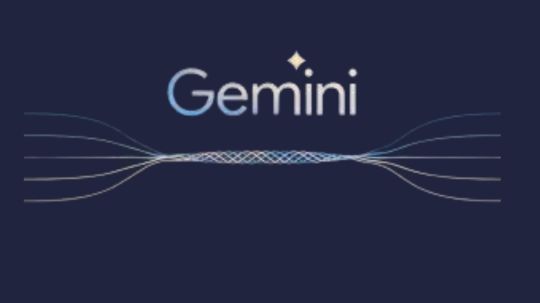
Introducing Gemini Code Assist Enterprise’s AI-powered app development tool that allows for code customisation.
The modern economy is driven by software development. Unfortunately, due to a lack of skilled developers, a growing number of integrations, vendors, and abstraction levels, developing effective apps across the tech stack is difficult.
To expedite application delivery and stay competitive, IT leaders must provide their teams with AI-powered solutions that assist developers in navigating complexity.
Google Cloud thinks that offering an AI-powered application development solution that works across the tech stack, along with enterprise-grade security guarantees, better contextual suggestions, and cloud integrations that let developers work more quickly and versatile with a wider range of services, is the best way to address development challenges.
Google Cloud is presenting Gemini Code Assist Enterprise, the next generation of application development capabilities.
Beyond AI-powered coding aid in the IDE, Gemini Code Assist Enterprise goes. This is application development support at the corporate level. Gemini’s huge token context window supports deep local codebase awareness. You can use a wide context window to consider the details of your local codebase and ongoing development session, allowing you to generate or transform code that is better appropriate for your application.
With code customization, Code Assist Enterprise not only comprehends your local codebase but also provides code recommendations based on internal libraries and best practices within your company. As a result, Code Assist can produce personalized code recommendations that are more precise and pertinent to your company. In addition to finishing difficult activities like updating the Java version across a whole repository, developers can remain in the flow state for longer and provide more insights directly to their IDEs. Because of this, developers can concentrate on coming up with original solutions to problems, which increases job satisfaction and gives them a competitive advantage. You can also come to market more quickly.
GitLab.com and GitHub.com repos can be indexed by Gemini Code Assist Enterprise code customisation; support for self-hosted, on-premise repos and other source control systems will be added in early 2025.
Yet IDEs are not the only tool used to construct apps. It integrates coding support into all of Google Cloud’s services to help specialist coders become more adaptable builders. The time required to transition to new technologies is significantly decreased by a code assistant, which also integrates the subtleties of an organization’s coding standards into its recommendations. Therefore, the faster your builders can create and deliver applications, the more services it impacts. To meet developers where they are, Code Assist Enterprise provides coding assistance in Firebase, Databases, BigQuery, Colab Enterprise, Apigee, and Application Integration. Furthermore, each Gemini Code Assist Enterprise user can access these products’ features; they are not separate purchases.
Gemini Code Support BigQuery enterprise users can benefit from SQL and Python code support. With the creation of pre-validated, ready-to-run queries (data insights) and a natural language-based interface for data exploration, curation, wrangling, analysis, and visualization (data canvas), they can enhance their data journeys beyond editor-based code assistance and speed up their analytics workflows.
Furthermore, Code Assist Enterprise does not use the proprietary data from your firm to train the Gemini model, since security and privacy are of utmost importance to any business. Source code that is kept separate from each customer’s organization and kept for usage in code customization is kept in a Google Cloud-managed project. Clients are in complete control of which source repositories to utilize for customization, and they can delete all data at any moment.
Your company and data are safeguarded by Google Cloud’s dedication to enterprise preparedness, data governance, and security. This is demonstrated by projects like software supply chain security, Mandiant research, and purpose-built infrastructure, as well as by generative AI indemnification.
Google Cloud provides you with the greatest tools for AI coding support so that your engineers may work happily and effectively. The market is also paying attention. Because of its ability to execute and completeness of vision, Google Cloud has been ranked as a Leader in the Gartner Magic Quadrant for AI Code Assistants for 2024.
Gemini Code Assist Enterprise Costs
In general, Gemini Code Assist Enterprise costs $45 per month per user; however, a one-year membership that ends on March 31, 2025, will only cost $19 per month per user.
Read more on Govindhtech.com
#Gemini#GeminiCodeAssist#AIApp#AI#AICodeAssistants#CodeAssistEnterprise#BigQuery#Geminimodel#News#Technews#TechnologyNews#Technologytrends#Govindhtech#technology
2 notes
·
View notes
Text
Tips to enhance query execution using clustering, partitions, and caching.
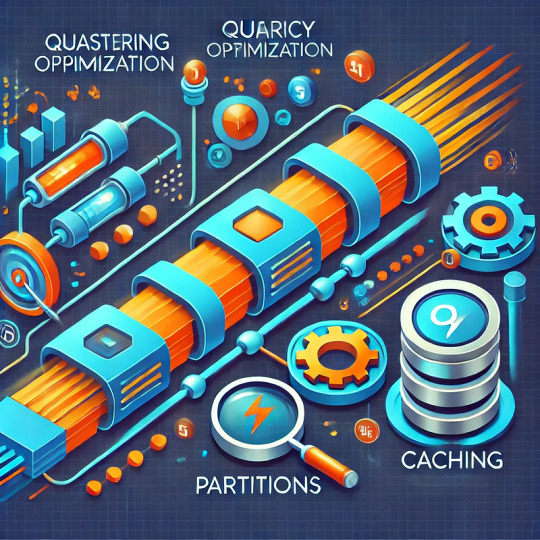
Tips to Enhance Query Execution Using Clustering, Partitions, and Caching Efficient query execution is critical for handling large datasets and delivering fast, responsive applications.
By leveraging techniques like clustering, partitions, and caching, you can drastically reduce query execution times and optimize resource usage.
This blog will explore these strategies in detail and provide actionable tips to improve your query performance.
Clustering: Organizing Data for Faster Access Clustering involves grouping similar data together within a database table to reduce the amount of data scanned during query execution.
Proper clustering can enhance the performance of queries with filtering or range-based conditions.
How Clustering Works: When a table is clustered, rows are organized based on the values in one or more columns (e.g., a date column or a geographic region).
Databases like Snowflake, PostgreSQL, and BigQuery offer clustering features to improve query efficiency.
Best Practices for Clustering: Choose Relevant Columns: Use columns frequently used in WHERE clauses, GROUP BY, or ORDER BY operations. Monitor Cluster Key Effectiveness: Periodically evaluate how well the clustering reduces scan sizes using database-specific tools (e.g., Snowflake’s CLUSTERING_DEPTH). Avoid Over-Clustering: Too many cluster keys can increase storage costs and reduce write performance.
2. Partitioning:
Divide and Conquer for Query Optimization Partitioning involves dividing a table into smaller, more manageable segments based on specific column values. Queries can skip irrelevant partitions, leading to faster execution and lower resource consumption.
Types of Partitioning: Range Partitioning: Divides data based on ranges (e.g., dates). Hash Partitioning: Distributes data evenly based on a hash function (useful for load balancing). List Partitioning: Organizes data into discrete groups based on predefined values (e.g., country names).
Best Practices for Partitioning:
Use Time-Based Partitions: For time-series data, partitioning by date or time ensures queries only access relevant time ranges. Combine Partitioning with Clustering: Use clustering within partitions to further optimize query performance. Avoid Too Many Partitions: Excessive partitioning can lead to metadata overhead and slower query planning.
3. Caching: Reducing Repeated Query Costs Caching stores frequently accessed data in memory or a temporary location to avoid reprocessing. Effective caching strategies can significantly boost performance, especially for repetitive queries.
Types of Caching:
Query Result Caching: Stores the results of executed queries.
Application-Level Caching: Caches query results at the application layer (e.g., in-memory caches like Redis or Memcached).
Materialized Views:
Pre-computed views stored in the database for quick retrieval.
Best Practices for Caching:
Enable Database Query Caching: Many databases, such as Snowflake and MySQL, offer built-in result caching that can be enabled with minimal effort.
Use Materialized Views for Complex Queries:
For queries involving aggregations or joins, materialized views can save time.
Implement Application-Level Caching: For APIs or frequently accessed dashboards, store results in a fast in-memory cache like Redis.
Set Expiry Policies:
Define appropriate TTL (Time-to-Live) values to ensure cached data remains fresh.
4. Combining Clustering, Partitioning, and Caching While each technique individually boosts performance, combining them yields the best results. Here’s how to integrate these methods effectively: Partition First: Divide data into logical chunks to minimize the amount scanned during queries.
Cluster Within Partitions:
Organize data within each partition to optimize retrieval further. Cache Frequently Used Results: Cache results of queries that are repeatedly executed on clustered and partitioned data.
Example Workflow:
Imagine a dataset containing millions of sales records: Partitioning: Split the table by year or month to ensure queries only scan relevant periods. Clustering: Cluster the data within each partition by product category to improve range-based filtering.
Caching: Cache results of frequently accessed reports, such as total monthly sales.
5. Tools and Technologies Here are some tools and platforms that support clustering, partitioning, and caching:
Clustering:
Snowflake, BigQuery, PostgreSQL.
Partitioning:
Apache Hive, Amazon Redshift, MySQL.
Caching: Redis, Memcached, Cloudflare CDN (for content delivery), Materialized Views in PostgreSQL.
6. Monitoring and Optimization To maintain optimal performance:
Track Query Performance: Use database monitoring tools to identify slow queries and adjust clustering or partitioning strategies.
Analyze Query Plans:
Review query execution plans to understand how data is accessed.
Tune Regularly:
As data grows, revisit your clustering, partitioning, and caching configurations to ensure they remain effective.
Conclusion
Enhancing query execution requires a combination of smart data organization and efficient reuse of results.
By leveraging clustering, partitioning, and caching, you can significantly improve performance, reduce costs, and ensure your applications deliver a seamless user experience. Start experimenting with these strategies today to unlock the full potential of your data.
WEBSITE: https://www.ficusoft.in/data-science-course-in-chennai/
0 notes
Text
Google Data Studio: The Game-Changer in search engine optimization Tracking
Introduction
In the ever-evolving international of search engine optimisation (website positioning), staying forward of the game Weraddicted.com is valuable. As search engine marketing mavens, we are continuously in search of approaches to enhance our tactics, monitor our development, and analyze statistics to make recommended judgements. This is the place Google Data Studio comes into play. With its strong beneficial properties and consumer-pleasant interface, Google Data Studio has revolutionized the means we monitor and look at search engine optimisation overall performance. In this text, we'll explore how Google Data Studio is replacing the sport in search engine marketing monitoring and focus on its merits, sophisticated tactics, and absolute best practices.
Google Data Studio: The Basics
Before diving into the complex functions and concepts of Google Data Studio, enable's start with the basics. Google Data Studio is a free records visualization tool that allows for you to create customizable studies and dashboards the usage of archives from numerous assets reminiscent of Google Analytics, Google Ads, and extra. With its drag-and-drop interface, you'll be able to easily create interactive charts, graphs, and tables to visualise your info.


How to Get Started with Google Data Studio?
Getting began with Google Data Studio is understated. All you need is a Google account to get entry to this successful instrument. Once you've gotten logged in, you'll be able to attach your tips assets by means of clicking at the "Create" button and making a choice on "Data Source." From there, you might pick out from a large quantity of connectors plausible or create a custom connector simply by the Google Sheets API.
Why Should You Use Google Data Studio for web optimization Tracking?
Google Data Studio presents countless advantages over basic tactics of website positioning tracking. Here are a few key purposes why you should always take into consideration through it:
youtube
Data Visualization for search engine marketing: Visualizing your search engine marketing info is fundamental for figuring out trends, deciding upon styles, and spotting alternatives for advantage. With its huge wide variety of visualization concepts, Google Data Studio makes it clean to understand not easy info units at a look.
youtube
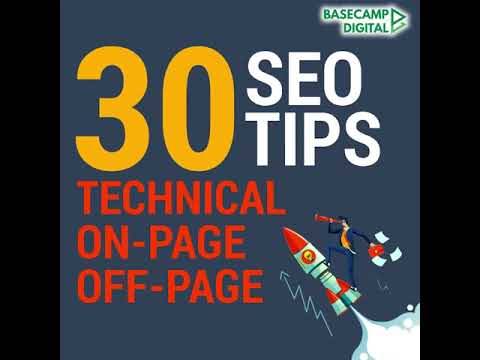
Advanced search engine optimisation Reporting Tools: Google Data Studio delivers complicated reporting resources that mean you can create dynamic and interactive reviews. You can personalize your studies with filters, date levels, and segments to point of interest on one-of-a-kind metrics or dimensions.
Improved search engine marketing Reporting Accuracy: By connecting straight away to your data assets, Google Data Studio guarantees true-time and properly reporting. Say so long to guide info exports and updates!
Integration with Other Google Tools: As a part of the Google Marketing Platform, Google Data Studio seamlessly integrates with different equipment akin to Google Analytics, Google Ads, and BigQuery. This integration allows you to mix facts from varied assets right into a single report for complete evaluation.
Using Google Data Studio for search engine marketing Tracking
Now that we have in mind the fundamentals and merits of riding Google Data Studio for se
0 notes
Text
Which data analysis tool is best for handling large datasets?
When handling large datasets, several data analysis tools stand out, each offering unique features tailored to different needs. Apache Hadoop is a popular choice for distributed data processing, allowing for the storage and computation of large volumes of data across clusters. It’s ideal for batch processing and handling massive amounts of unstructured data. Apache Spark, known for its speed and versatility, improves on Hadoop’s limitations by offering in-memory processing, making it suitable for real-time data analysis. Spark also supports various data sources and formats, making it a flexible option.
For those who prefer a more interactive environment, Python with libraries like Pandas and Dask can handle large datasets efficiently. While Pandas is excellent for smaller data, Dask extends its capabilities to large, distributed data with minimal code changes.
Another robust tool is SQL-based solutions like Google BigQuery or Amazon Redshift, which are cloud-based and optimized for large-scale data querying and analysis. These tools offer scalability and speed, making them perfect for businesses managing growing data needs.
Professionals looking to enhance their knowledge and skills in using these tools can benefit from data analytics certification courses, which provide hands-on experience and theoretical insights into modern data analysis practices.
0 notes
Text
Google Cloud Platform: Empowering Innovation in the Digital Age
In today's rapidly evolving digital landscape, organizations are seeking robust and scalable solutions to meet their growing needs. Google Cloud Platform (GCP) has emerged as a leading cloud computing service, empowering businesses of all sizes to innovate and stay competitive. From startups to multinational corporations, GCP offers a suite of tools and services designed to accelerate growth, enhance security, and optimize operations.
What is Google Cloud Platform?
Google Cloud Platform is a comprehensive cloud computing service that provides a range of solutions including computing power, storage, data analytics, machine learning, and networking. Built on Google’s infrastructure, GCP is designed to be flexible, reliable, and scalable, making it an ideal choice for a wide variety of applications. Whether you're developing a web application, managing large data sets, or deploying machine learning models, GCP offers the resources needed to bring your ideas to life.
Key Features of Google Cloud Platform
Scalability and Flexibility GCP provides scalable solutions that grow with your business. From virtual machines to Kubernetes clusters, GCP’s infrastructure can handle workloads of any size. With the ability to scale up or down based on demand, you can ensure optimal performance and cost-efficiency.
Advanced Data Analytics With tools like BigQuery, Google Cloud offers powerful data analytics capabilities. Businesses can analyze massive datasets in real time, uncovering insights that drive informed decision-making. GCP's data analytics tools integrate seamlessly with other services, enabling comprehensive data management and analysis.
Machine Learning and AI GCP’s AI and machine learning services, such as TensorFlow and AutoML, allow businesses to build and deploy intelligent applications. Whether you’re developing a custom AI model or using pre-trained models, GCP provides the resources to innovate and stay ahead in the AI revolution.
Security and Compliance Security is a top priority for Google Cloud. GCP offers a range of security features, including encryption, identity management, and threat detection. With compliance certifications across various industries, GCP ensures that your data is protected and meets regulatory requirements.
Global Network Google’s global network infrastructure ensures that GCP services are fast and reliable. With data centers in multiple regions, GCP provides low-latency access to your applications and data, no matter where your users are located.
Why Choose Google Cloud Platform?
Cost Efficiency GCP offers a pay-as-you-go pricing model, ensuring that you only pay for the resources you use. With sustained use discounts and custom machine types, you can optimize costs without sacrificing performance.
Innovation at Scale Google Cloud is at the forefront of cloud innovation, continuously developing new tools and services. By choosing GCP, you gain access to the latest technologies, enabling your business to innovate and grow.
Seamless Integration GCP integrates easily with other Google services, such as Google Workspace and Android. This seamless integration allows businesses to build comprehensive solutions that leverage Google’s ecosystem.
Support and Community Google Cloud offers robust support options, including 24/7 customer support and a vibrant community of developers and experts. Whether you need help with a specific issue or want to learn more about best practices, GCP’s support network is there to assist you.
Conclusion
Google Cloud Platform is more than just a cloud service; it's a powerful tool for digital transformation. With its wide array of services, robust security, and innovative technologies, GCP empowers businesses to achieve their goals and stay competitive in the digital age. Whether you're looking to scale your infrastructure, harness the power of AI, or secure your data, Google Cloud Platform offers the solutions you need to succeed.
0 notes
Text
How Can Beginners Start Their Data Engineering Interview Prep Effectively?
Embarking on the journey to become a data engineer can be both exciting and daunting, especially when it comes to preparing for interviews. As a beginner, knowing where to start can make a significant difference in your success. Here’s a comprehensive guide on how to kickstart your data engineering interview prep effectively.
1. Understand the Role and Responsibilities
Before diving into preparation, it’s crucial to understand what the role of a data engineer entails. Research the typical responsibilities, required skills, and common tools used in the industry. This foundational knowledge will guide your preparation and help you focus on relevant areas.
2. Build a Strong Foundation in Key Concepts
To excel in data engineering interviews, you need a solid grasp of key concepts. Focus on the following areas:
Programming: Proficiency in languages such as Python, Java, or Scala is essential.
SQL: Strong SQL skills are crucial for data manipulation and querying.
Data Structures and Algorithms: Understanding these fundamentals will help in solving complex problems.
Databases: Learn about relational databases (e.g., MySQL, PostgreSQL) and NoSQL databases (e.g., MongoDB, Cassandra).
ETL Processes: Understand Extract, Transform, Load processes and tools like Apache NiFi, Talend, or Informatica.
3. Utilize Quality Study Resources
Leverage high-quality study materials to streamline your preparation. Books, online courses, and tutorials are excellent resources. Additionally, consider enrolling in specialized programs like the Data Engineering Interview Prep Course offered by Interview Kickstart. These courses provide structured learning paths and cover essential topics comprehensively.
4. Practice with Real-World Problems
Hands-on practice is vital for mastering data engineering concepts. Work on real-world projects and problems to gain practical experience. Websites like LeetCode, HackerRank, and GitHub offer numerous challenges and projects to work on. This practice will also help you build a portfolio that can impress potential employers.
5. Master Data Engineering Tools
Familiarize yourself with the tools commonly used in data engineering roles:
Big Data Technologies: Learn about Hadoop, Spark, and Kafka.
Cloud Platforms: Gain experience with cloud services like AWS, Google Cloud, or Azure.
Data Warehousing: Understand how to use tools like Amazon Redshift, Google BigQuery, or Snowflake.
6. Join a Study Group or Community
Joining a study group or community can provide motivation, support, and valuable insights. Participate in forums, attend meetups, and engage with others preparing for data engineering interviews. This network can offer guidance, share resources, and help you stay accountable.
7. Prepare for Behavioral and Technical Interviews
In addition to technical skills, you’ll need to prepare for behavioral interviews. Practice answering common behavioral questions and learn how to articulate your experiences and problem-solving approach effectively. Mock interviews can be particularly beneficial in building confidence and improving your interview performance.
8. Stay Updated with Industry Trends
The field of data engineering is constantly evolving. Stay updated with the latest industry trends, tools, and best practices by following relevant blogs, subscribing to newsletters, and attending webinars. This knowledge will not only help you during interviews but also in your overall career growth.
9. Seek Feedback and Iterate
Regularly seek feedback on your preparation progress. Use mock interviews, peer reviews, and mentor guidance to identify areas for improvement. Continuously iterate on your preparation strategy based on the feedback received.
Conclusion
Starting your data engineering interview prep as a beginner may seem overwhelming, but with a structured approach, it’s entirely achievable. Focus on building a strong foundation, utilizing quality resources, practicing hands-on, and staying engaged with the community. By following these steps, you’ll be well on your way to acing your data engineering interviews and securing your dream job.
#jobs#coding#python#programming#artificial intelligence#education#success#career#data scientist#data science
0 notes
Text
Chipsy.io Backend Development: Unleashing the Power of Modern Technology
In the fast-evolving world of technology, businesses need robust, scalable, and secure backend systems to support their digital transformation. At Chipsy.io, we specialize in backend development, harnessing the power of cutting-edge technologies to build systems that drive your business forward.
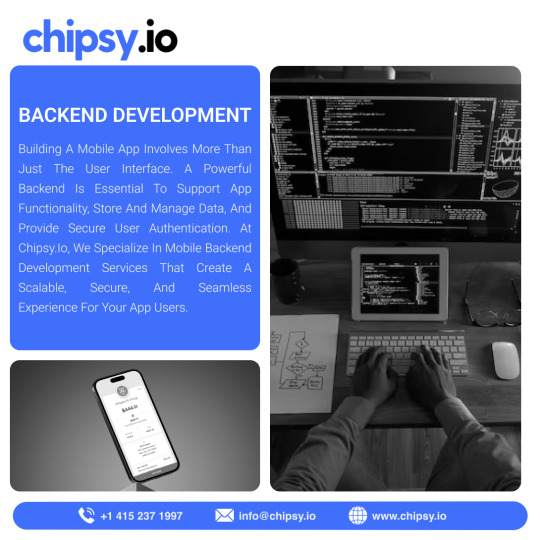
Key Technologies
AWS: Leveraging Amazon Web Services (AWS), we provide scalable and flexible solutions that meet the demands of your business. From EC2 instances to Lambda functions, our expertise ensures your applications run smoothly and efficiently.
Azure: With Microsoft Azure, we deliver enterprise-grade solutions that integrate seamlessly with your existing infrastructure. Our services include everything from Azure App Services to Azure Functions, enabling rapid development and deployment.
Google Cloud Platform (GCP): Utilizing the power of GCP, we build highly scalable and resilient backend systems. Our capabilities include using Google Kubernetes Engine (GKE) for container orchestration and BigQuery for real-time analytics.
Best Practices
At Chipsy.io, we adhere to industry best practices to ensure the quality and reliability of our backend systems:
Microservices Architecture: We design our systems using a microservices architecture, allowing for independent development, deployment, and scaling of each service.
Continuous Integration/Continuous Deployment (CI/CD): Our CI/CD pipelines automate the testing and deployment process, ensuring rapid and reliable releases.
Security: We implement robust security measures, including data encryption, secure APIs, and regular security audits, to protect your sensitive information.
Monitoring and Logging: Our systems include comprehensive monitoring and logging solutions, providing real-time insights and facilitating quick issue resolution.
Future Trends
We stay ahead of the curve by continuously exploring emerging trends and technologies:
Serverless Computing: Our expertise in serverless architectures allows for building highly scalable applications without the need for server management.
Artificial Intelligence and Machine Learning: We integrate AI and ML capabilities into backend systems to provide advanced analytics and automation.
Edge Computing: By processing data closer to the source, we reduce latency and improve performance, especially for IoT applications.
Why Choose Chipsy.io?
Partnering with Chipsy.io for your backend development needs means gaining access to a team of experts dedicated to delivering high-quality, future-proof solutions. Our commitment to excellence and innovation ensures your business stays competitive in a digital-first world.
Ready to transform your backend systems? Contact Chipsy.io today and let us help you unleash the power of modern technology.
#backend development#aws#microsoft azure#mobile app design#artificial intelligence#machinelearning#google cloud platform#google cloud services
0 notes
Text
NL2SQL With Gemini And BigQuery: A Step-by-Step Guide
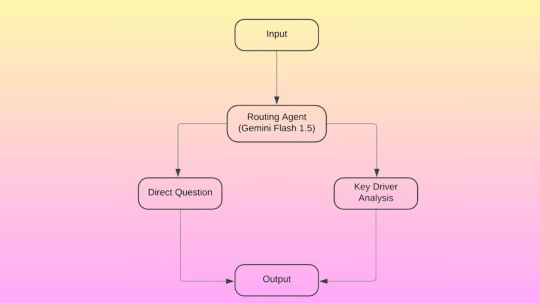
Conversion of natural language to SQL
Beginning to use Gemini and BigQuery for NL2SQL (natural language to SQL)
The intriguing new technology known as Natural Language to SQL, or NL2SQL, was created by combining the classic Structured Query Language (SQL) with Natural Language Processing (NLP). It converts inquiries written in common human language into structured SQL queries.
The technology has enormous potential to change how we engage with data, which is not surprising.
With the help of NL2SQL, non-technical users like marketers, business analysts, and other subject matter experts can engage with databases, examine data, and obtain insights independently without requiring specific SQL expertise. Even SQL experts can save time by using NL2SQL to create sophisticated queries, which allows them to devote more time to strategic analysis and decision-making.
On the ground, how does that appear? Imagine having instant access to a chat interface where you can ask inquiries and receive real-time replies, or
“How many units were sold overall this month?”
“What are the main factors influencing the shift in APAC sales when comparing Q1 and Q2 sales?”
In the past, this would have required an expert to extract information from databases and turn it into business insights. By lowering obstacles to data access, it can democratize analytics by utilizing NL2SQL.
However, a number of obstacles prevent NL2SQL from being extensively used. We’ll look at NL2SQL solutions on Google Cloud and implementation best practices in this blog.
Data quality issues in practical applications
Let us first examine some of the factors that contribute to the difficulty of implementing NL2SQL.
Real-world production data poses a number of difficulties, even if NL2SQL performs best in controlled settings and straightforward queries. These difficulties include:
Data formatting variations: The same information can be expressed in a variety of ways, such as “Male,” “male,” or “M” for gender, or “1000,” “1k,” or “1000.0” for monetary amounts. Additionally, many organizations use poorly defined acronyms of their own.
Semantic ambiguity: Large Language Models (LLMs) frequently lack domain-specific schema comprehension, which results in semantic ambiguity. This can cause user queries to be misinterpreted, for example, when the same column name has many meanings.
Syntactic rigidity: If semantically correct queries don’t follow SQL’s stringent syntax, they may fail.
Unique business metrics: NL2SQL must manage intricate business computations and comprehend table relationships via foreign keys. To translate the question effectively, one must have a sophisticated understanding of the tables that need to be connected and modeled together. Additionally, there is no one standard approach to determine the business KPIs that each corporation should use in the final narrative report.
Client difficulties
Users’ questions are frequently unclear or complicated, so it’s not only the data that can be unclear or poorly formatted. These three frequent issues with user inquiries may make NL2SQL implementation challenging.
Ambiguous questions: Even questions that appear to be clear-cut can be unclear. For example, a query looking for the “total number of sold units month to date” may need to specify which date field to use and whether to use average_total_unit or running_total_unit, etc. The perfect NL2SQL solution will actively ask the user to select the correct column and use their input when creating the SQL query.
Underspecified questions: Another issue is queries that are not detailed enough. For example, a user’s question concerning “the return rate of all products under my team in Q4” does not provide enough details, such as which team should fully grasp the question. An optimal NL2SQL solution should identify areas of ambiguity in the initial input and ask follow-up questions to obtain a comprehensive representation of the query.
Complex queries that require a multi-step analysis: Numerous questions require several stages of analysis. Consider figuring out the main causes of variations in sales from quarter to quarter, for instance: A good NL2SQL solution should be able to deconstruct the study into digestible parts, produce interim summaries, and then create a thorough final report that answers the user’s question.
Dealing with the difficulties
In order to address these issues, Google designed Gemini Flash 1.5 as a routing agent that can categorize queries according to their level of complexity. It can enhance its results by applying methods like contribution analysis models, ambiguity checks, vector embeddings, and semantic searches after the question has been classified.
It reacts to instructions in a JSON format using Gemini. Gemini can act as a routing agent, for instance, by responding to the few-shot prompt.
Direct inquiries
The right column names in scope can be clarified for direct inquiries by utilizing in-context learning, draft SQL ambiguity checks, and user feedback loops. Additionally, simple questions can be guaranteed to generate SQL that is clear.
For straightforward inquiries, its method does the following:
Gathers quality question/SQL pairings.
Keeps samples in BigQuery rows.
Enables the question to have vector embeddings
Leverages BigQuery vector search to extract related examples based on the user’s query.
Adds the table structure, question, and example as the LLM context.
Produces a draft SQL
Executes a loop that includes a SQL ambiguity check, user feedback, refinement, and syntax validation.
Performs the SQL
Uses natural language to summarize the data.
Gemini appears to perform well on tasks that check for SQL ambiguity, according to its heuristic testing. Google started by creating a draft SQL model that had all of the table structure and context-related questions. This allowed Gemini to ask the user follow-up questions to get clarification.
Key driver analysis
Key driver analysis is another name for multi-step reasoning-based data analysis in which analysts must separate and organize data according to every possible combination of attributes (e.g., product categories, distribution channels, and geographies). Google suggests combining Gemini and BigQuery contribution analysis for this use case.
Key driver analysis adds the following steps to the ones done with direct questions:
The routing agent refers users to a key driver analysis special handling page when they ask a query about it.
From ground truth stored in a BigQuery vector database, the agent retrieves similar question/SQL embedding pairings using BigQuery ML vector search.
After that, it creates and verifies the CREATE MODEL statement in order to construct a report on contribution analysis.
Lastly, the SQL that follows is executed in order to obtain the contribution analysis report:
The final report appears as follows:
With Gemini, you can further condense the report in natural language:
Implementing NL2SQL on Google Cloud
Even though this can sound difficult, Google Cloud provides a comprehensive set of tools to assist you in putting an effective NL2SQL solution into place. Let’s examine it.
BigQuery vector search is used for embedding and retrieval
By using BigQuery for embedding storage and retrieval, it is possible to quickly find instances and context that are semantically meaningful for better SQL production. Vertex AI’s text embedding API or BigQuery’s ML.GENERATE_EMBEDDING function can be used to create embeddings. It is simple to match user queries and SQL pairs when BigQuery is used as a vector database because of its inherent vector search.
Contribution analysis using BigQuery
Contribution analysis modeling can find statistically significant differences throughout a dataset, including test and control data, to identify areas of the data that are producing unanticipated changes. A section of the data based on a combination of dimension values is called a region.
To help answer “why?” questions, the recently unveiled contribution analysis preview from BigQuery ML enables automated explanations and insight development of multi-dimensional data at scale. Regarding your data, “What happened?” and “What’s changed?”
The contribution analysis models in BigQuery, in summary, facilitate the generation of many queries using NL2SQL, hence increasing overall efficiency.
Ambiguity checks with Gemini
The process of translating natural language inquiries into structured SQL queries is known as NL2SQL, and it is often unidirectional. Gemini can assist in lowering ambiguity and enhancing the output statements in order to boost performance.
When a question, table, or column schema is unclear, you may utilize Gemini 1.5 Flash to get user input by asking clarifying questions. This will help you improve and refine the SQL query that is produced. Additionally, Gemini and in-context learning can be used to expedite the creation of SQL queries and results summaries in natural language.
Top NL2SQL techniques
For an advantage in your own NL2SQL endeavor, take a look at the following advice.
Start by determining which questions require attention: Depending on the final report’s goal, answering a question may seem straightforward, but getting the intended response and storyline frequently requires several steps of reasoning. Before your experiment, gather the expected natural language ground truth, SQL, and your query.
Data purification and preparation are essential, and using LLMs does not replace them. As needed, establish new table views and make sure that useful descriptions or metadata are used in place of business domain acronyms. Before going on to more complicated join-required questions, start with straightforward ones that just need one table.
Practice iteration and SQL refinement with user feedback: Google’s heuristic experiment demonstrates that iteration with feedback is more effective following the creation of an initial draft of your SQL.
For queries with multiple steps, use a custom flow: Multi-dimensional data explanations and automated insight development can be made possible by BigQuery contribution analysis models.
Next up?
A big step toward making data more accessible and useful for everyone is the combination of NL2SQL, LLMs, and data analytic methods. Enabling users to communicate with databases through natural language can democratize data access and analysis, opening up improved decision-making to a larger group of people in every company.
Data, size, and value can now be rationalized more easily than ever thanks to exciting new innovations like BigQuery contribution analysis and Gemini.
Read more on govindhtech.com
#NL2SQL#Gemini#BigQuery#NaturalLanguage#SQL#SQLqueries#LLM#API#BigQueryML#Gemini1.5#News#Technews#Technology#Technologynews#Technologytrends#Govindhtech
0 notes